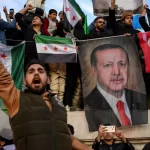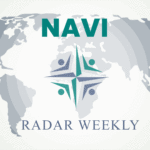Subscribe to NAVI Radar Weekly here
Focus Point: Regional Security / Indo-Pacific
China’s New Info Warriors: The Information Support Force Emerges | The War on the Rocks
Joel Wuthnow | 24.06.2024
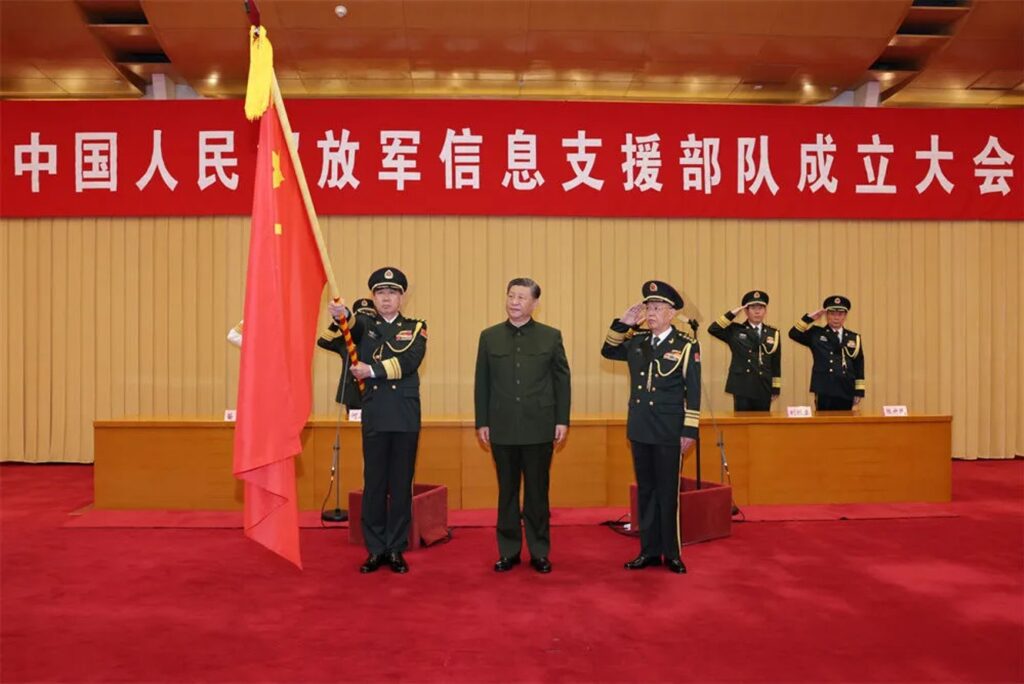
Xi Jinping has tried to remake the People’s Liberation Army, but he’s recently been forced to undo part of his own creation. In April, China’s military underwent its largest reorganization this decade when the Strategic Support Force was eliminated, and a new Information Support Force inaugurated. Xi has hailed the new force as a “strategic force and a key support for coordinating the construction and application of network information systems.” He added that it would help “smooth information links,” “strengthen information protection,” and “efficiently implement information support,” all of which would be crucial for the military to carry out multi-domain joint operations. Read more…
Focus Point: Security and Defense Policy/ Russia-Ukraine War
EU foreign ministers try to bypass Hungary’s veto on military aid to Ukraine | Finabel
Euronews | 24.06.2024
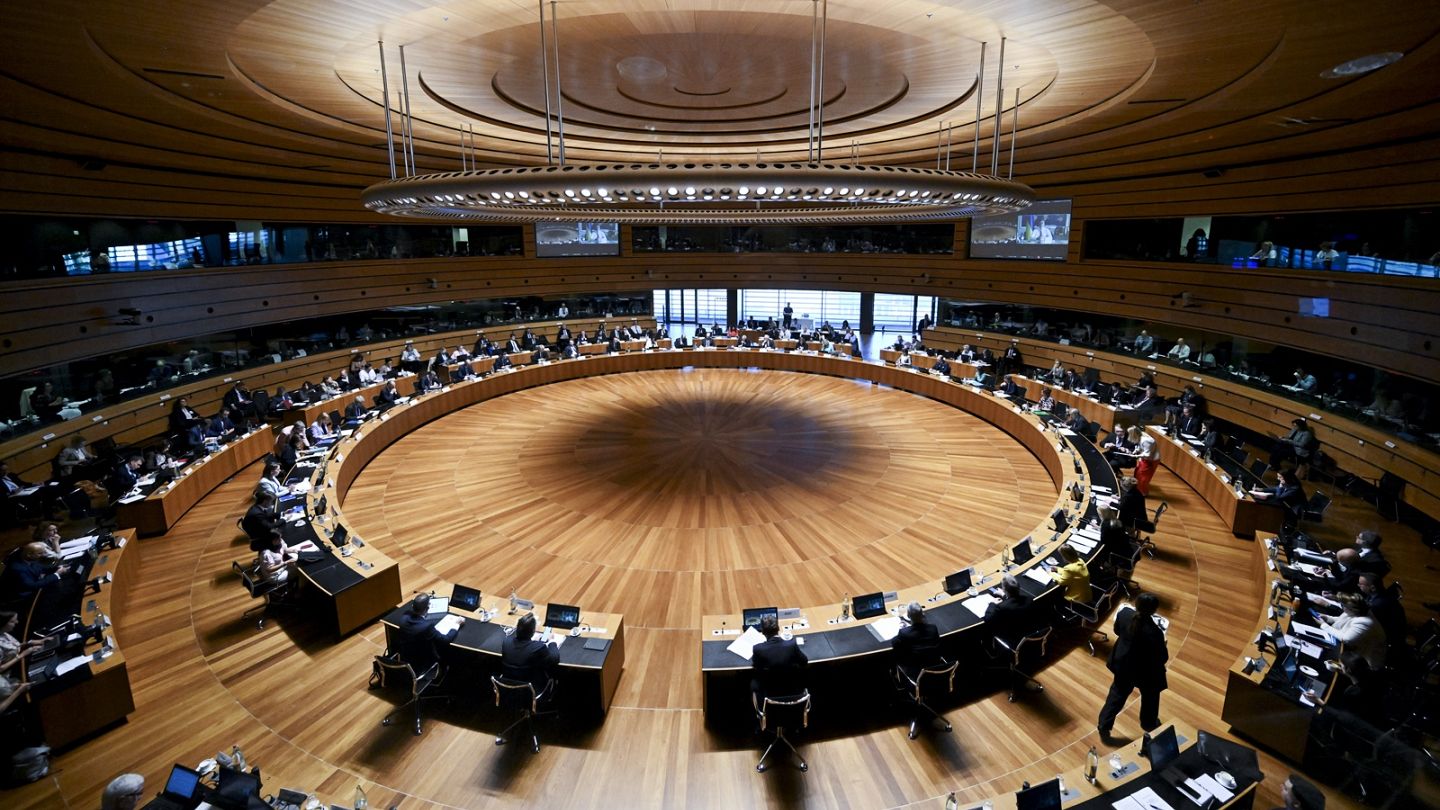
Member states agreed in March to capture these revenues and channel them directly into Ukraine’s coffers: 90% for military equipment and 10% for reconstruction projects.
The €1.4 billion is the first tranche of the €2.5 billion that Brussels expects to collect in the near term.
Ensuring the aid reaches the government in Kyiv has become a number one priority as Ukraine tries to contain a renewed push of Russian troops in the East and pleads with Western allies to help replenish its army stocks.
It was not immediately clear how Monday’s decision managed to circumvent Hungary’s veto, as any foreign policy decision in the bloc depends on the principle of unanimity. Read more…
Focus Point: Security and Defense Policy- Russia-Ukraine War
Denmark to stop training Ukrainian F-16 pilots beyond 2024 | The Kyiv Independent
Dmytro Basmat| 25.06.2024
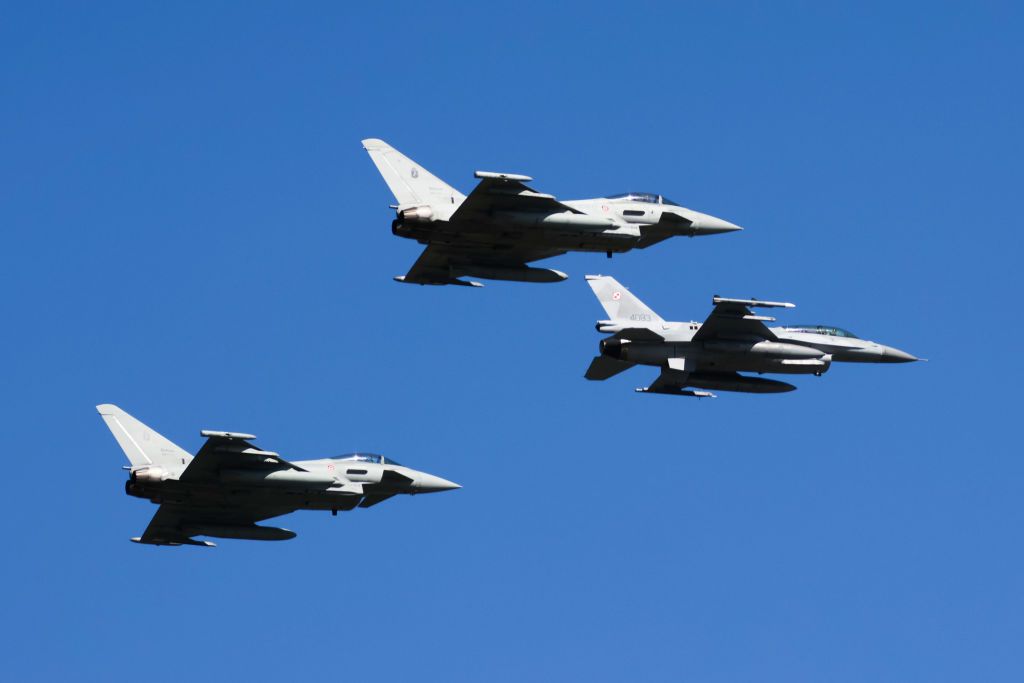
Denmark will stop training Ukrainian F-16 pilots by the end of this year as the country transitions to operating F-35 fighter jets, Danish Defense Minister Troels Lund Poulsen said on June 24.
“We will be transitioning to flying the F-35, so we need to spend our energy on that, and so we cannot continue training Ukrainian pilots after 2024,” Poulsen said at a press conference on Monday.
The first Danish F-16s are scheduled to arrive in Ukraine this summer. The country will send 19 F-16 aircraft to Kyiv, as well as equipment for F-16 fighter jets. Kyiv also expects to receive the aircraft also from the Netherlands, Belgium, and Norway. Denmark will soon finish training about 20 Ukrainian F-16 pilots at the Skrydstrup air base. Read more…
Focus Point: Social, Economic & Security/ Social Studies
NAVI Speaker Series – Dr. Stanislava Mladenova – Civil-Military Relations in Fragile State | NAVI Reseach Institute
Dr Uğur Orak | 25.06.2024
As part of the NAVI Speaker Series, we had an enlightening discussion on civil-military relations in fragile states with Dr. Stanislava Mladenova, a Global Fellow at Brown University’s Center for Human Rights and Humanitarian Studies and the author of “When Rambo Meets the Red Cross: Civil-Military Engagement in Fragile States.”
During the webinar, Dr. Mladenova discussed her book, providing valuable insights on topics such as the nature of fragile and irregular warfare spaces, the role of the military in humanitarian and development efforts, and the similarities between Special Operations Forces (SOFs) units and Non-Governmental Organizations (NGOs) regarding their areas of operation, the resources they bring to the table, and their operational methods. Following her talk, we engaged in a detailed discussion to explore these topics further. At the end of the webinar, Dr. Mladenova answered questions from the participants.
You can watch the full video here: https://lnkd.in/e__sc3Hk
“Today, we are faced with a politically and militarily complex situation in Gaza, Ukraine, Haiti, and great power competition with China. These are the concerns people have in Washington, DC these days. But perhaps the MOST pertinent and substantial challenges we face TODAY are those of the HUMAN CONDITION in fragile and irregular spaces, which will be home to 2/3rds of the world’s poor by 2030. It is also in THESE spaces where populations will INCREASINGLY suffer from the effects of climate change, extreme poverty, inequality, and insecurity. And it is also from THESE spaces where we will inevitably see the emergence of persistent state fragility, INSURGENCY, and irregular warfare. NGOs are increasing in size and complexity, and they are now concentrating in places where SOFs are. The military cannot fix what’s wrong alone, and neither can the civilian organizations working on the ground alongside them.” Read more…
Focus Point: Emerging Technologies & Data / Standards
Microsoft breaches antitrust rules with Teams, EU Commission says | Euronews
Cynthia Kroet | 25.06.2024

The tech giant already separated Teams and Office 365 but those efforts are not enough.
Microsoft has breached the EU’s antitrust rules by tying its videoconferencing platform Teams to its Office 365 and Microsoft 365 products, the European Commission said today (25 June).
Today’s preliminary outcome of an investigation started by the Commission in July last year, suggests that the US tech giant is dominant worldwide in the market for software hosted on cloud infrastructure of the supplier’s choice (called software as a service or Saas). By connecting Teams to its core software applications since April 2019, the Commission fears that Microsoft has been restricting competition on the market. The EU executive’s antitrust investigation was related to a complaint from the communication platform Slack, now owned by Salesforce, filed in 2020. Read more
Focus Point: Emerging Technologies & Data / Standards
Apple intelligence rules out EU launch in 2024 over antitrust laws | Euronews
Indrabati Lahiri | 25.06.2024
Apple Intelligence will not be launched within the EU in 2024 because of privacy and security concerns, the US group has revealed. That means iPhone owners within the EU will not be able to plug into new Apple artificial intelligence (AI) features, such as Apple Intelligence, improvements to the SharePlay screen-sharing feature and iPhone Mirroring. The features, expected to be released later this year, will not come to the EU because of the recent Digital Markets Act (DMA) which has led to increased regulatory complications.
Apple says one of the main requirements of the DMA, interoperability, conflicts with its own stance on privacy and security concerns.
Interoperability means that key features, such as texting, calling, voice messages, and the sharing of images and videos, should work across third-party operators and competing devices. Read more…
Focus Point: Social, Economic & Security/ Social Studies
“Torture destroys communities”—An interview with the UN Special Rapporteur on Torture | OMCT
OMCT | 26.06.2024

The interview below, released on the International Day in Support of Victims of Torture on 26 June, marks the kickoff of the Voices for Human Dignity multimedia initiative. This initiative celebrates the 40th anniversary of the Convention against Torture (1984-2024) by amplifying the voices of torture survivors, experts, and activists.
Torture is not only a crime against individuals; it destroys communities. Civil society organisations are essential for raising awareness, advocating for change, holding governments accountable, and supporting victims. They play a vital role in rehabilitation and offering long-term support to survivors. Read more…
Focus Point: Regional Security- Transatlantic Security/ NATO
NATO in the democratic arena | NATO
Michael Turner and Gerald E. Connolly| 26.06.2024
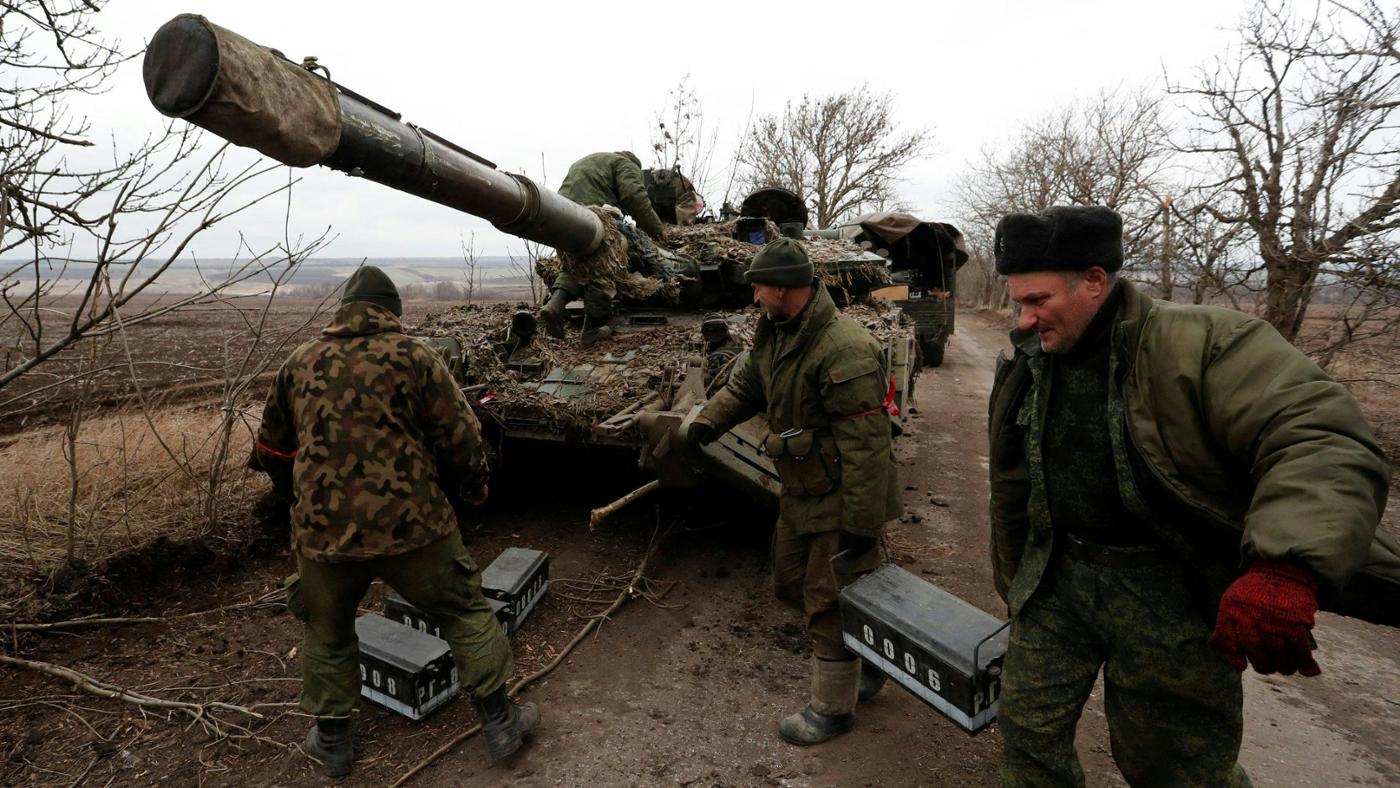
Time and again, NATO has had to redefine itself to meet the next major emerging threat to Allied security. When the Cold War ended, many rushed to write NATO’s obituary. Instead, the Alliance set out on a new European project, one that would eventually give rise to robust democracies and extend NATO membership to areas of the continent previously shrouded behind the Iron Curtain.
In 2022, when Russia launched a full-scale invasion of Ukraine meant to capture the capital of Europe’s largest country and bring 40 million people under the heel of a Muscovian marionette, some lamented NATO enlargement as the cause of Putin’s murderous ambition. It is, however, that very enlargement of the Alliance that keeps Tallinn and Helsinki out of Putin’s grasp. The difference between what happened to Europe at the hands of Hitler in the 1930s and the threat posed by Putin’s Russia is NATO. NATO territory is a redline Putin dare not cross. Article 5 is ironclad.
At the NATO Leaders’ Summit in Madrid in 2022, the Alliance adopted a new Strategic Concept that further enshrines the founding democratic principles of the Washington Treaty in how we define and organise ourselves as a political-military alliance. For the first time ever, we resolve that NATO will “safeguard our freedom and democracy,” and “reinforce our shared democratic values”. Also for the first time ever, the Strategic Concept identifies authoritarianism as a challenge to our “interests, values, and democratic way of life.” Not just Russian or Chinese authoritarianism, but authoritarianism in general.
The world needs NATO in the arena. Putin and Xi would welcome a West that succumbs to the critic’s refrain that NATO is brain dead, obsolete, and a relic of the Cold War. The Alliance, however, can and will meet the challenges posed by authoritarianism by preserving our defence and deterrence capabilities, and rededicating ourselves to our founding democratic values. Now more than ever, prioritising democratic resilience and strengthening the Alliance is critical to ensuring peace and security, both in Europe and across the globe. Read more…
Focus Point: Regional Security- Transatlantic Security/European Security
Statement by President von der Leyen on opening accession negotiations with Ukraine and Moldova, via video message | The EU Commission
The EU Commission | 26.06.2024
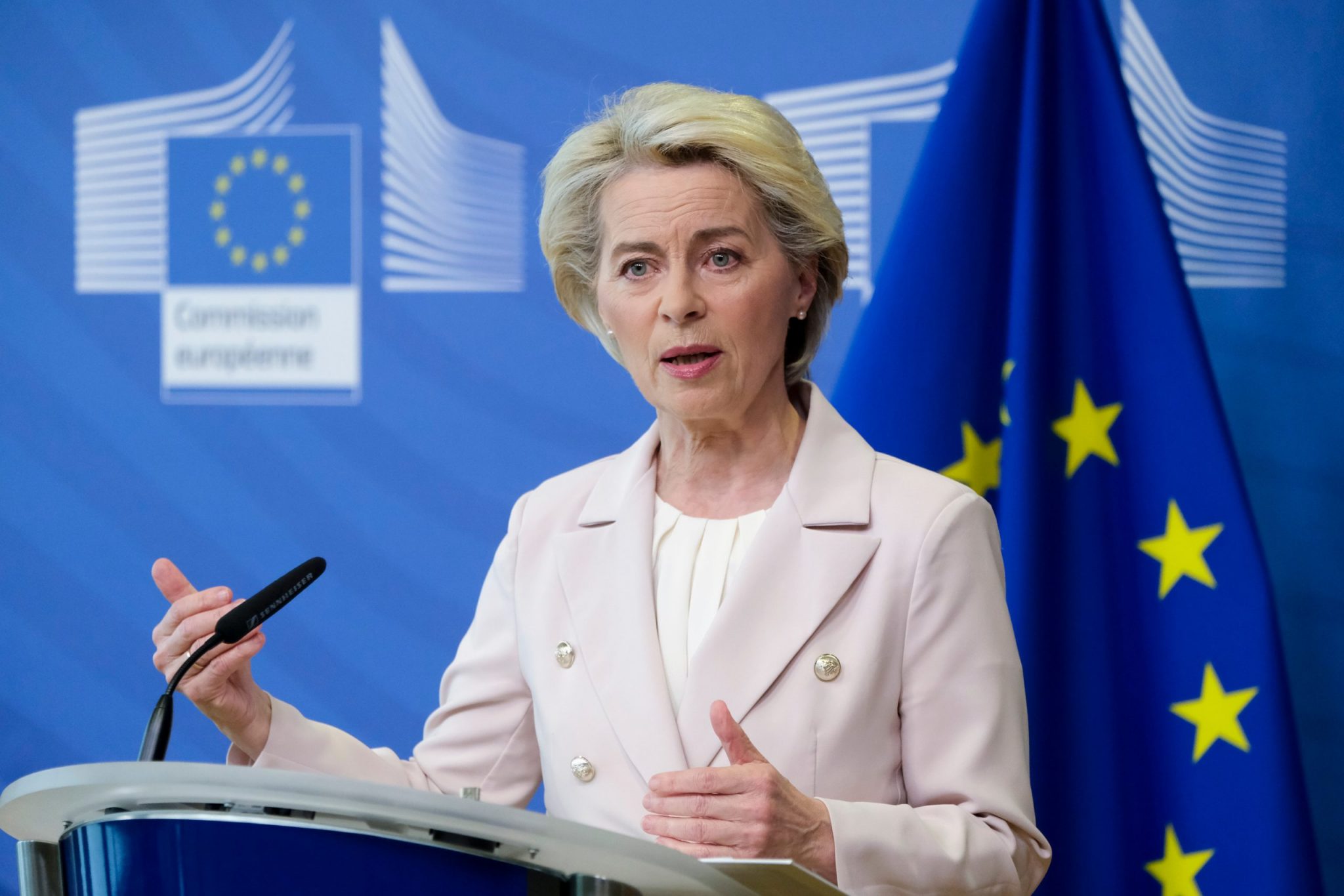
It is very good news that today the European Union opens accession negotiations with Ukraine and Moldova.
We stand at the threshold of a significant and transformative moment for these two countries and for our Union.And we celebrate the values and principles that bind us together. The EU has always been more than a political and economic union. It is a testament to our collective aspiration for peace, for security, for democracy and for prosperity.
The people of Ukraine and Moldova have demonstrated their unwavering commitment and determination to be a part of this project. Even in a time of war and turmoil they have started extensive reforms.
They know, that their journey will be rigorous and demanding. The accession negotiations are designed to prepare the candidates for the responsibilities of membership. This is why there are no shortcuts. We embark on these negotiations in a strong spirit of openness, engagement, and commitment.
The path ahead will be challenging. But it is also filled with immense opportunities for Moldova and Ukraine – as well as for our entire Union.
Together, we can forge a larger, more dynamic and forward-looking Europe. So I wish you a very successful start of the accession negotiations.
Thank you very much. Read more…
Focus Point: Regional Security- Transatlantic Security/Indo-Pasific
In a first, China accuses former defence ministers Li Shangfu and Wei Fenghe of corruption | SCMP
Jun Mai and Liu Zhen | 27.06.2024

In an unprecedented move, Beijing has announced corruption investigations into two former defence ministers.
Wei Fenghe and his successor Li Shangfu have also been expelled from the Communist Party, state news agency Xinhua reported, following a meeting on Thursday of the party’s 24-man Politburo.
The investigation into Li began on August 31 and concluded that he had accepted “large sums of money” to seek benefits for others. He had also bribed others, according to the statement.
Wei came under investigation on September 21 and is accused of accepting unauthorised gifts and large amounts of money in exchange for using his power to obtain benefits for others. He is not accused of taking bribes.
Li and Wei are just the latest senior PLA officers to be brought down in the ongoing anti-graft campaign. Nine generals, including previous and serving commanders from the PLA Rocket Force and the air force as well as a number of CMC officials with the Equipment Development Department, were dismissed from the National People’s Congress in December. Read more…
Focus Point: Emerging Technologies & Data / Standards
Transatlantic Tech Policy Tracker | CEPA
CEPA | 28.06.2024

CEPA’s Transatlantic Tech Policy Tracker charts the key tech policy and business developments around the globe. From antitrust to telecommunications and artificial intelligence to European digital regulation, this interactive tool allows users to search and find news items compiled since the beginning of 2020.
ISSUES
Antitrust: The set of policies designed to preserve business competition in specific markets.
Artificial Intelligence: The actions that impact the use of AI in the commercial and public spheres.
Content Moderation: The set of corporate and government actions designed to limit information published, processed, or consumed online.
Cybersecurity: The actions relating to the security and the vulnerabilities of cyberspace, including cyberattacks and new attempts at cyber resilience.
Data Privacy: The set of practices tackling individual rights in the digital world and organizations’ use of personal data.
E-commerce & Fintech: The set of policies impacting the access to products through digital markets.
Economic Security: The agreements, industrial, technology, and trade policies aimed at de-risking the Western economies.
Emerging Technologies: The developments relating to digital and physical technologies with scalable transformational potential, such as blockchain or quantum computing.
EU Digital Regulation: All legislative efforts by the European Union and its bodies to regulate, reorganize, or impact the digital technology sector.
Private Enterprise: The set of strategic decisions made by leading tech companies to impact a desired market.
Telecommunications & Infrastructure: The developments related to the restriction, expansion, or building of connectivity and digital infrastructure.
US Digital Regulation: All legal developments in the United States regulating, reorganizing, or impacting the digital technology sector. Read more…
Focus Point: Regional Security- Transatlantic Security/ NATO
Sustaining NATO: 75 Years of RAND Insights | RAND
Anna M. Dowd, Stephanie Pezard, Stephen J. Flanagan, Clara de Lataillade | 28.06.2024
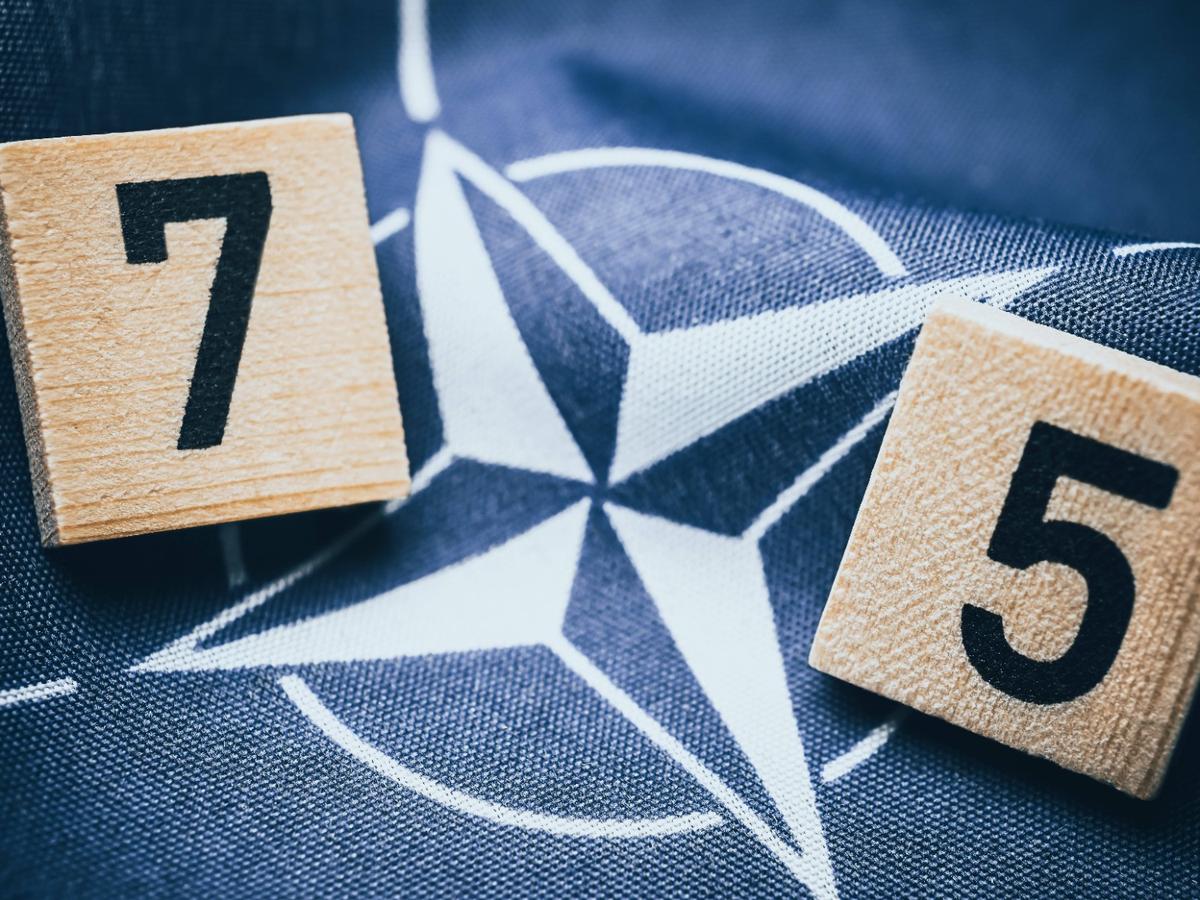
Key Findings
As NATO redoubles efforts to ensure the security and territorial integrity in light of Russia’s war on Ukraine and the prospect of a wider, high-intensity conflict, RAND’s past and present analyses underscore the centrality of reinforcing NATO’s deterrence and defense posture. Improving force generation, readiness, firepower, and logistics and exploiting new technologies are vital in implementing NATO’s deterrence and defense concept and require adequate resources and seamless integration of strategic, domain, and regional defense plans.
RAND research on the transatlantic bargain has consistently demonstrated the need for reciprocal commitment to collective defense on both sides of the Atlantic. It also illustrates the importance of candid consultations among allies on the evolving international environment and risk-sharing to ensure cohesion on the goals, means, costs, and benefits of collective NATO activities.
NATO’s collective security guarantee remains the most reliable and effective way to ensure a member country’s sovereignty and security. RAND’s early research on NATO expansion suggests that allies would benefit from offering Ukraine clarity at the 2024 Washington Summit on the conditions for its future membership, in a manner consistent with the principles that guided earlier decisions on NATO enlargement.
RAND’s analysis of NATO adaptation to a changing security environment, during and since the end of the Cold War, presents important lessons, particularly on the value of partnerships, for addressing threats from emerging and disruptive technologies and other complex challenges in the era of great-power competition, including the threats posed by China, to shared Alliance interests. Read more…
Focus Point: Regional Security- Transatlantic Security/European Security
EU strategic agenda | The European Council
The European Council | 29.06.2024

The StrategicAgenda 2024-2029 process was launched at an informal European Council meeting in Granada, Spain, on 6 October 2023. Over the following months, EU leaders regularly discussed the EU’s direction and goals for the coming years. The strategic agenda was subsequently adopted on 27 June 2024.
EU leaders have agreed on that sets out the EU’s strategic priorities for the next institutional cycle.
What is the strategic agenda?
Every five years, EU leaders agree on the EU’s political priorities for the future. It is a collective effort led by the President of the European Council, where leaders discuss and decide together. It takes place in the context of the European Parliament elections and ahead of the appointment of each European Commission.
Why does the EU need it?
In the past few years, the EU has faced many crises from which it has emerged stronger and more united. From the fight against climate change to mitigating the impact of the COVID-19 pandemic and taking unprecedented action in support of Ukraine following Russia’s war of aggression, the EU has acted swiftly and coordinatedly.
As the world becomes more unstable and complex, the EU is faced with economic and geopolitical challenges. More than ever, leaders need to set a clear strategic plan for the next years and provide a solid framework for our more immediate actions. Strategic agenda is based on three pillars:



Thank you very much for reading.
The NAVI Research Institute is the research division of NATO Veterans Initiative - NAVI that provides a unique perspective to transatlantic leaders and societies on peace and security through the lens of NATO's founding principles of rule of law, democracy, human rights, and individual liberties. The NAVI Research Institute was officially established by the NAVI Board on July 16th, 2023.
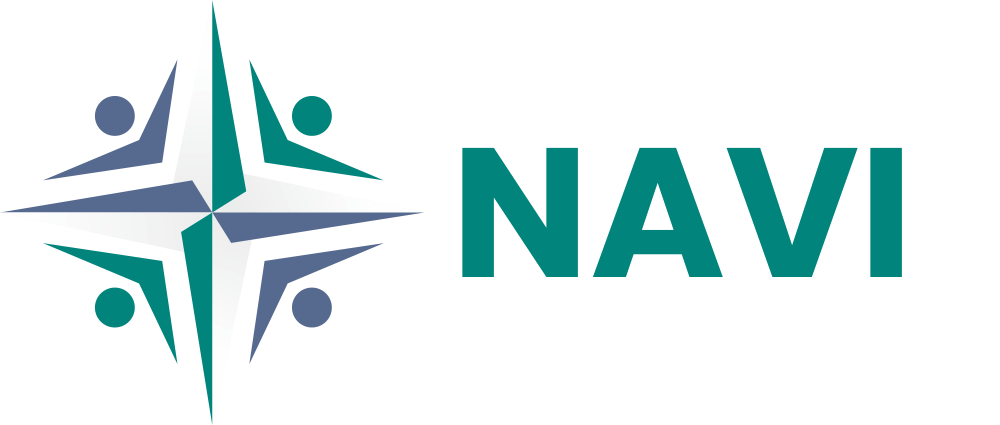
![NAVI-PROJE-[Recovered] Radar Weekly](https://nato-veterans.org/wp-content/uploads/2024/05/NAVI-PROJE-Recovered-696x392.gif)


